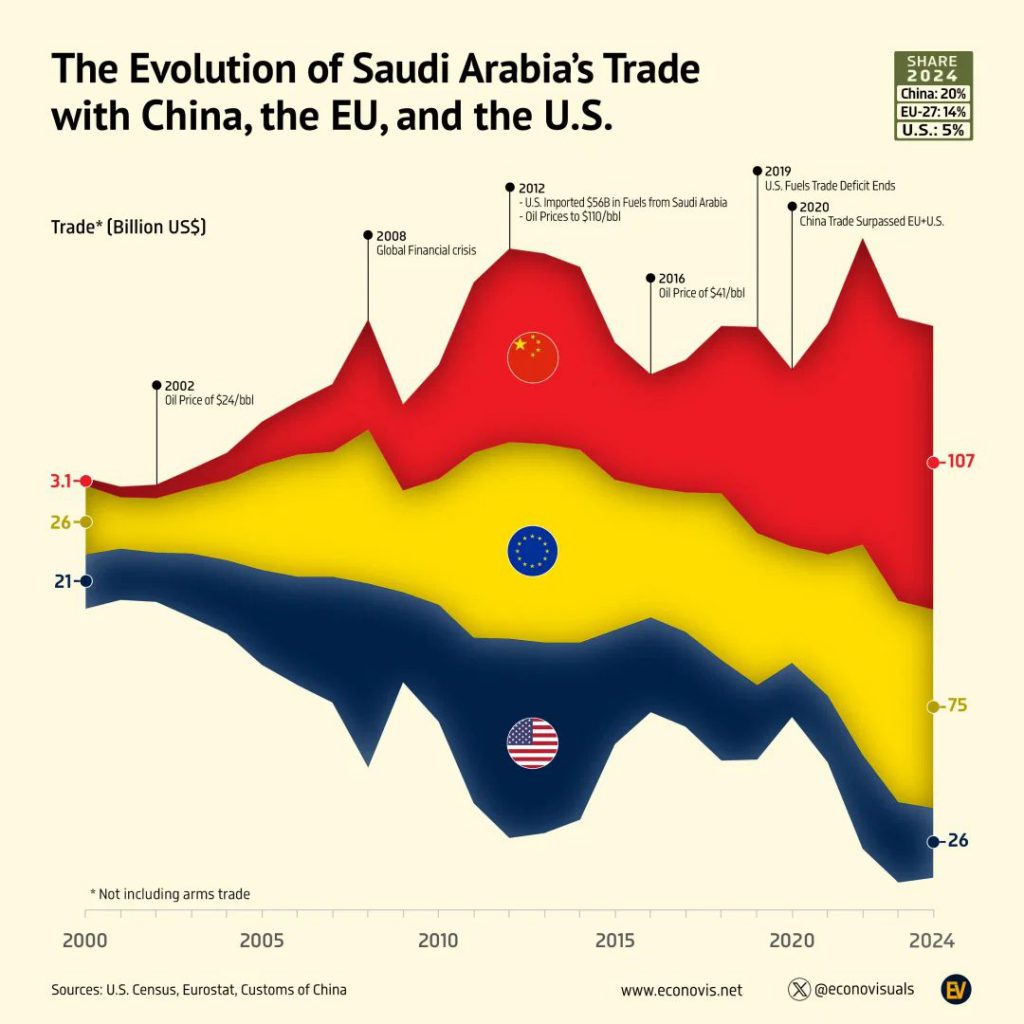Saudi Arabia and China Ink 57 Deals Worth $3.73B—Petrodollars Meet Digital Silk Road
Oil money meets blockchain ambition as Riyadh and Beijing shake hands on a $3.73 billion tech-and-trade spree. The deals span energy, fintech, and infrastructure—because what’s a modern geopolitical alliance without a tokenized asset or two?
The Breakdown:
57 agreements signed in one go. Half will probably vanish into bureaucratic black holes, but the other half? That’s where the real action is—think AI partnerships, digital payment corridors, and maybe even a CBDC bridge or three.
Why It Matters:
While Wall Street still argues about yield curves, the East is busy building the next financial system. Hint: it won’t run on SWIFT.
The Cynic’s Take:
Another ‘strategic partnership’ where both sides will quietly hedge their bets with Bitcoin reserves. Old money meets new tricks.
Saudi-China $3.73B Agreements Boost Trade, Finance, Currency Use

As Saudi Arabia and China sign 57 deals worth over $3.73 billion USD, at the same time institutional cryptocurrency market activity has also increased significantly. The BlackRock ETF inflows at the time of writing reflect growing confidence among major investors who are seeking alternative asset classes in today’s changing financial landscape.
Strengthening Bilateral Economic Ties
In attendance were the Minister of Environment, Water and Agriculture, Abdulrahman Alfadley, as well as a large number of both Arab and Saudi officials and investors.
Minister Alfadley noted:
He additionally highlighted that China currently represents about 18% of the Kingdom’s foreign trade.
Important Projects and BRICS Cooperation

Saudi Arabia and China signed 57 agreements worth over $3.73 billion USD that promote using local currencies instead of the US dollar, fulfilling goals both nations have discussed for some time. The projects actually span multiple areas such as environmental, water, agricultural, fisheries, and also livestock sectors, while promoting currency substitution in practical ways.
Key initiatives include things like knowledge exchange programs for water recycling techniques, human capacity development efforts, seaweed cultivation stations, and additionally biofuel production facilities.
Future Trade Implications
These agreements between Saudi Arabia and China demonstrate growing BRICS cooperation and also currency substitution efforts that are gaining momentum currently. Trading in local currencies helps to cut costs and reduces the use of dollar-based systems, and this trend is closely observed by experts in the global trade world.

